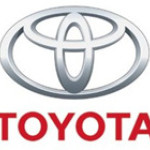- Industri: Automotive
- Number of terms: 3540
- Number of blossaries: 0
- Company Profile:
One of several horizontal members in a vehicle's frame that join the side members and add to the vehicle's strength and stability.
Industry:Automotive
These exist at the front and rear of the vehicle to help absorb the impact of a collision. These pre-stressed areas in the fender, hood, frame and related body components are designed to deform in a predetermined manner during collision. Their purpose is to help lessen the force the impact transfers to the passenger compartment. In essence, the crumple zone of a vehicle is sacrificed to help protect the occupants.
Industry:Automotive
The weight of an empty vehicle, without cargo and driver and passengers, but including maximum amounts of fuel, oil, coolant and standard equipment, including the spare tire and tools.
Industry:Automotive
A hollow tube that is machined into the engine block and contains a piston.
Industry:Automotive
The main structural element of any engine design and the part to which other engine components are attached (usually a casting and includes engine cylinders and the upper part of the crankcase).
Industry:Automotive
This is the angle between the ground and a line running from the rear tire to the rear bumper. Indicates a vehicle's ability to drive off a ramp or obstacle without damaging the rear of the vehicle. Also see approach angle.
Industry:Automotive
A gear assembly that allows one driven wheel to turn at a different speed from the wheel on the other end of the axle. This is necessary since an outside wheel has farther to travel than an inside wheel when turning a corner.
Industry:Automotive
A disc or rotor is attached to the wheel. A non-moving caliper straddles this disc. When you push the brake pedal, pads within the caliper squeeze both sides of the disc to slow and stop the wheel. Also see Ventilated Disc Brakes.
Industry:Automotive
Refers to the primary measure of an engine's size (volume of air/fuel mixture) and is most often expressed in liters (a 2.0-liter engine displaces 2,000 cubic centimeters).
Industry:Automotive
